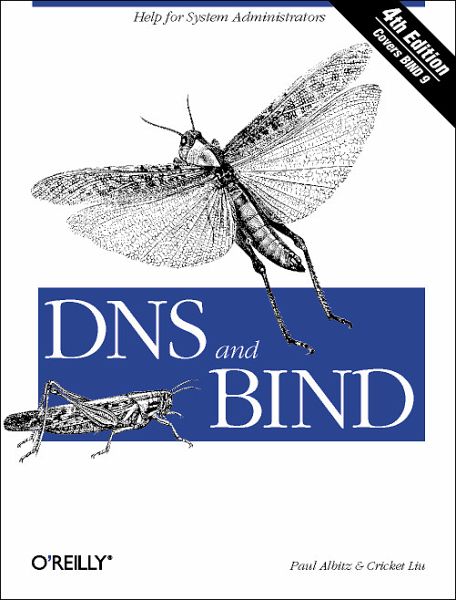Nicht lieferbar

DNS and BIND
Versandkostenfrei!
Nicht lieferbar
DNS and BIND is about one of the Internet's fundamental building blocks: the distributed host information database that's responsible for translating names into addresses, routing mail to its proper destination, and many other services. As the authors say in the preface, if you're using the Internet, you're already using DNS--even if you don't know it.
This edition brings you up to date on the new 9.1.0 and 8.2.3 versions of BIND along with the older 4.9 version. There's also more extensive coverage of NOTIFY, IPv6 forward and reverse mapping, transaction signatures, and the new DNS Security Extensions; and a new section on accommodating Windows 2000 clients, servers and Domain Controllers.
Whether you're an administrator involved daily with DNS or a user who wants to be more informed about the Internet and how it works, you'll find this book essential reading. Topics include:
* What DNS does, how it works, and when you need to use it * How to find your own place in the Internet's name space
* Setting up name servers * Using MX records to route mail
* Configuring hosts to use DNS name servers * Subdividing domains (parenting)
* Securing your name server: restricting who can query your server, preventing unauthorized zone transfers, avoiding bogus name servers, etc. * Mapping one name to several servers for load sharing
* Troubleshooting: using nslookup, reading debugging output, common problems
* DNS programming, using the resolver library and Perl's Net::DNS module
This edition brings you up to date on the new 9.1.0 and 8.2.3 versions of BIND along with the older 4.9 version. There's also more extensive coverage of NOTIFY, IPv6 forward and reverse mapping, transaction signatures, and the new DNS Security Extensions; and a new section on accommodating Windows 2000 clients, servers and Domain Controllers.
Whether you're an administrator involved daily with DNS or a user who wants to be more informed about the Internet and how it works, you'll find this book essential reading. Topics include:
* What DNS does, how it works, and when you need to use it * How to find your own place in the Internet's name space
* Setting up name servers * Using MX records to route mail
* Configuring hosts to use DNS name servers * Subdividing domains (parenting)
* Securing your name server: restricting who can query your server, preventing unauthorized zone transfers, avoiding bogus name servers, etc. * Mapping one name to several servers for load sharing
* Troubleshooting: using nslookup, reading debugging output, common problems
* DNS programming, using the resolver library and Perl's Net::DNS module



